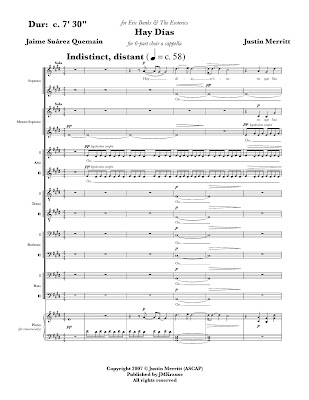 Jaime Quemain was the editor of an independent newspaper in San Salvador. In 1980 he was arrested by plainclothes men in a cafe. The next day his dead body was found on the street tortured and mutilated with a machete. He was 30. He was almost certainly murdered by paramilitary death squads associated with the Salvadoran army. He was killed at almost the same time and place as the more well known Archbishop Oscar Arnulfo Romero, who assassinated by Rafael Alvaro Saravia while celebrating mass on Monday, March 24, 1980.
Jaime Quemain was the editor of an independent newspaper in San Salvador. In 1980 he was arrested by plainclothes men in a cafe. The next day his dead body was found on the street tortured and mutilated with a machete. He was 30. He was almost certainly murdered by paramilitary death squads associated with the Salvadoran army. He was killed at almost the same time and place as the more well known Archbishop Oscar Arnulfo Romero, who assassinated by Rafael Alvaro Saravia while celebrating mass on Monday, March 24, 1980.Hay Días is not a poem of political protest. Rather it is a poem expressing the lives of the people during a time of violence and upheaval. This work has moments of dread and visions of death, moments of red-blooded exuberance, and a reminder of the power of crowds to strive for change amid violence and repression. This idea of cycles is expressed by the four stanzas of the poem roughly corresponding to the four seasons of the year: winter/death, spring/sex, summer/heat and violence, and a return to darkness and fear. The piece expresses this by a subtle harmonic progression that leads, over the course of the work, through all 12 key areas before returning to the original c# minor/A Lydian at the close. The poem ends with hope amid terror, the image of a flower growing from a grave. In a final ironic twist, the last bittersweet word of the poem, “flores” (flower), is the name of the right wing Arenero President Francisco Flores who ruled El Salvador from 1999-2004.
This work was composed as a part of The Esoteric’s Polyphonos Competition, polyphonos meaning, “having many voices or manifold in expression.” I was inspired by this idea of many voices to create a work in which each of the many voices within the choir would have a chance to be heard individually. This work features a profusion of intertwining solos and extremely divided textures.
Hay Días
Hay días, señor
en que San Salvador se llena
de sombras y de miedo
y sus calles angostas parecen
cementerios cubiertos de ceniza
y creemos que un niño
la muchacha
el amigo
marchan a nuestro lado
y son simples fantasmas
vagas sombras que sueñan
sienten hambre
defecan...
Hay días, señor,
en que San Salvador se llena
de estupendas mujeres
que con su movimiento
nos incendian el sexo...
el amor es un niño
volando su piscucha
o una pareja
contemplando vitrinas:
el amor se da por canastadas.
Pero hay otros días, señor,
En que San Salvador despierta
De su santa paciencia
Y vemos muchachos y obreros
Que salen a la calle
A gritar su iracundia
A dejar su protesta
Dibujada con sangre
sobre el pavimento
A gritar sus canciones
Sus poemas
Sus sueños...
Es entonces, señor,
Cuando los enemigos
De los niños sin techo
Caminan silenciosos
Sombreados por la luna
Y golpean las puertas de los ángeles
Y los sacan atados a cavar una fosa
Donde crecerán flores.
-Jaime Suárez Quemain
There are Days
There are days, sir,
in which San Salvador is filled
with shadows and fear
and its narrow streets resemble
ash-covered cemeteries
and we think that a child
a girl
a friend
walks beside us
and they are simply phantoms
vague shadows that dream
feel hunger
defecate…
There are days, sir,
in which San Salvador is filled
with stupendous women
whose movements
inflame our sex…
Love is a little boy
Flying his kite
or a couple
window-shopping:
there are basketsful of love.
But there are other days, sir,
in which San Salvador arouses
from its saintly patience
and we see youths and workers
take the streets
to shout in anger
to leave their protest
painted in blood
on the pavement
to shout their songs
their poems
their dreams…
It is then, sir,
when the enemies of roofless children
walk silently
shadowed by the moonlight
and rap on the doors of angels
and take them away, bound,
to dig a grave
where flowers will grow.
-Jaime Suárez Quemain
(translated by the Claribel Alegría & Darwin J. Flakoll)
visit www.mooneast.com
No comments:
Post a Comment